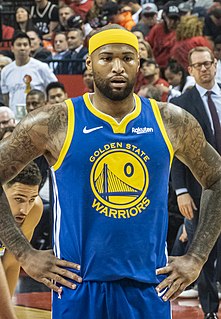A Quote by Maya Wiley
Having grown up in a Black neighborhood, gone to a segregated Black public school that was overcrowded and underfunded, watched my neighbors be displaced when rents went up and they couldn't afford to pay them - all this shaped my career.
Related Quotes
If you have an all-white neighborhood you don't call it a segregated neighborhood. But you call an all-black neighborhood a segregated neighborhood. And why? Because the segregated neighborhood is the one that's controlled by the ou - from the outside by others, but a separate neighborhood is a neighborhood that is independent, it's equal, it can do - it can stand on its own two feet, such as the neighborhood. It's an independent, free neighborhood, free community.
I would say I'm black because my parents said I'm black. I'm black because my mother's black. I'm black because I grew up in a family of all black people. I knew I was black because I grew up in an all-white neighborhood. And my parents, as part of their protective mechanisms that they were going to give to us, made it very clear what we were.
I grew during segregation in an all-black segregated neighborhood with segregated schools, etcetera. I was raised by a great father, my hero, who I much admired. So, I never really had anxiety in the way that someone like Obama would have. When he walks down the street alone, since no one knows who his mother is, they're just going to see him as a black guy.
If you're going to compare a middle-income black kid with a middle- income white kid, and, say, you control for family background, family education, and family income, and if this middle-income black kid doesn't score as well as the white kid on the test, then I say, look, you haven't taken into consideration the cumulative effect of living in a segregated neighborhood and going to a de facto segregated school. You're denying a position at Harvard or some other place to a kid that really could make it. That's why I support affirmative action that's based on both class and race.
During my childhood, Washington was a segregated city, and I lived in the midst of a poor black neighborhood. Life on the streets was often perilous. Indoor reading was my refuge, and twice a week, I made the hazardous bicycle trek to the central library at Seventh and K streets to stock up on supplies.
When I'm born I'm black, when I grow up I'm black, when I'm in the sun I'm black, when I'm sick I'm black, when I die I'm black, and you...when you're born you're pink, when you grow up you're white, when you're cold you're blue, when you're sick you're green, when you die you're grey and you dare call me coloured.































